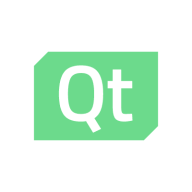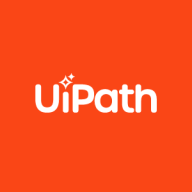

Qt Squish and UiPath Test Cloud compete in the automated GUI and software testing market. Based on feature set and integration capabilities, UiPath Test Cloud holds an advantage for its comprehensive automation capabilities across various technologies.
Features: Qt Squish identifies and scripts UI components effectively, especially for C#/WPF applications. It supports multiple platforms and integrates with CI systems like TeamCity, supporting various scripting languages. UiPath Test Cloud focuses on extensive automation capabilities, offering tool integration for diverse scenarios and technologies. Its versatility is key for diverse automation tasks.
Room for Improvement: Qt Squish could improve its IDE for enhanced breakpoint handling and user-friendliness, particularly in recording tests and object identification. It also lacks comprehensive testing for non-Qt applications like C/C++. UiPath Test Cloud should improve Test Manager, file maintenance, orchestration, and defect tracking to better accommodate manual testing needs.
Ease of Deployment and Customer Service: Qt Squish provides strong technical support with quick response times primarily for on-premises operation, ensuring solutions-oriented service. UiPath Test Cloud offers flexible deployment options, including public and hybrid clouds, although its customer service is less reliable in providing helpful resolutions.
Pricing and ROI: Qt Squish is expensive yet offers satisfactory ROI through perpetual licensing, justifiable by reduced manual testing time. UiPath Test Cloud, although costly, provides significant value with comprehensive features, presenting entry barriers for smaller firms due to its high price, with licensing less flexible than Squish’s straightforward approach.
For the part that has been automated in Qt, not everything is suitable for automation.
They get into the meeting, understand the problem, and try to provide a solution quickly.
Support should be free, especially for product-related issues.
I would rate UiPath's support neutrally at a five.
With one license, just one user or one test scenario can be run at a time.
Proper knowledge of Orchestrator and CI/CD processes makes the product truly scalable.
Scaling with UiPath Test Cloud is supported; they have the infrastructure to scale automation to meet business needs.
UiPath Test Suite has matured over the years and is now quite stable.
It is performing better than two to three years back; significant improvements have been made for complete project delivery.
If you want to run it for different versions of the software, then you need the Qt version of Java.
If they could add defect management, it could work independently without needing Jira.
I've noticed that adding more users impacts the speed, although nothing stops entirely.
UiPath should introduce compatibility so existing processes in Selenium or other tools can work seamlessly with UiPath Test automation.
For the developer license, it is about $5200 a year.
Our customers usually pay around 30K to 35K for five licenses, which is priced per year.
The pricing of UiPath tends to be on the higher side, which can restrict smaller companies from adopting it.
For the parts that have been automated in Qt, not everything is suitable for automation.
The ability of the test suite to automate tests across a wide range of technologies is great since UiPath's background in RPA is specifically designed to automate basically any and all technologies.
Some of the best features I find with UiPath Test Cloud include the creation of end-to-end workflows with API integration.
The most valuable feature of UiPath Test Cloud that I have found is the TestManager dashboard, which integrates with Jira through Planview Tasktop.
| Product | Market Share (%) |
|---|---|
| UiPath Test Cloud | 3.8% |
| Qt Squish | 2.9% |
| Other | 93.3% |

| Company Size | Count |
|---|---|
| Small Business | 10 |
| Midsize Enterprise | 2 |
| Large Enterprise | 9 |
| Company Size | Count |
|---|---|
| Small Business | 4 |
| Midsize Enterprise | 4 |
| Large Enterprise | 19 |
Take the complexity out of testing graphical user interfaces (GUIs) and human-machine interfaces (HMIs) – even in the face of product evolution and safety-critical applications.
UiPath Test Cloud enhances test automation through agentic testing, integrating AI with human efforts for comprehensive quality assurance. It supports seamless integration with diverse tools, offering easy debugging and reduced maintenance costs with its low-code design and automation capabilities.
UiPath Test Cloud offers a unified platform facilitating automation and regression testing across applications like web frameworks and supply chain systems. Its intuitive interface integrates with tools such as Jenkins, allowing efficient workflows. While tackling mobile and automation challenges, it demands improvements in manual testing options and third-party integrations. Enhancements in file management, AI integration, and reporting are necessary for optimal performance.
What are the key features of UiPath Test Cloud?In industries like supply chain management and vendor systems, UiPath Test Cloud is implemented to ensure software stability post-updates, assisting in workflows and data handling. It supports communication with vendors while reducing time to market, even amid current challenges in mobile automation and third-party tool integration.
We monitor all Test Automation Tools reviews to prevent fraudulent reviews and keep review quality high. We do not post reviews by company employees or direct competitors. We validate each review for authenticity via cross-reference with LinkedIn, and personal follow-up with the reviewer when necessary.